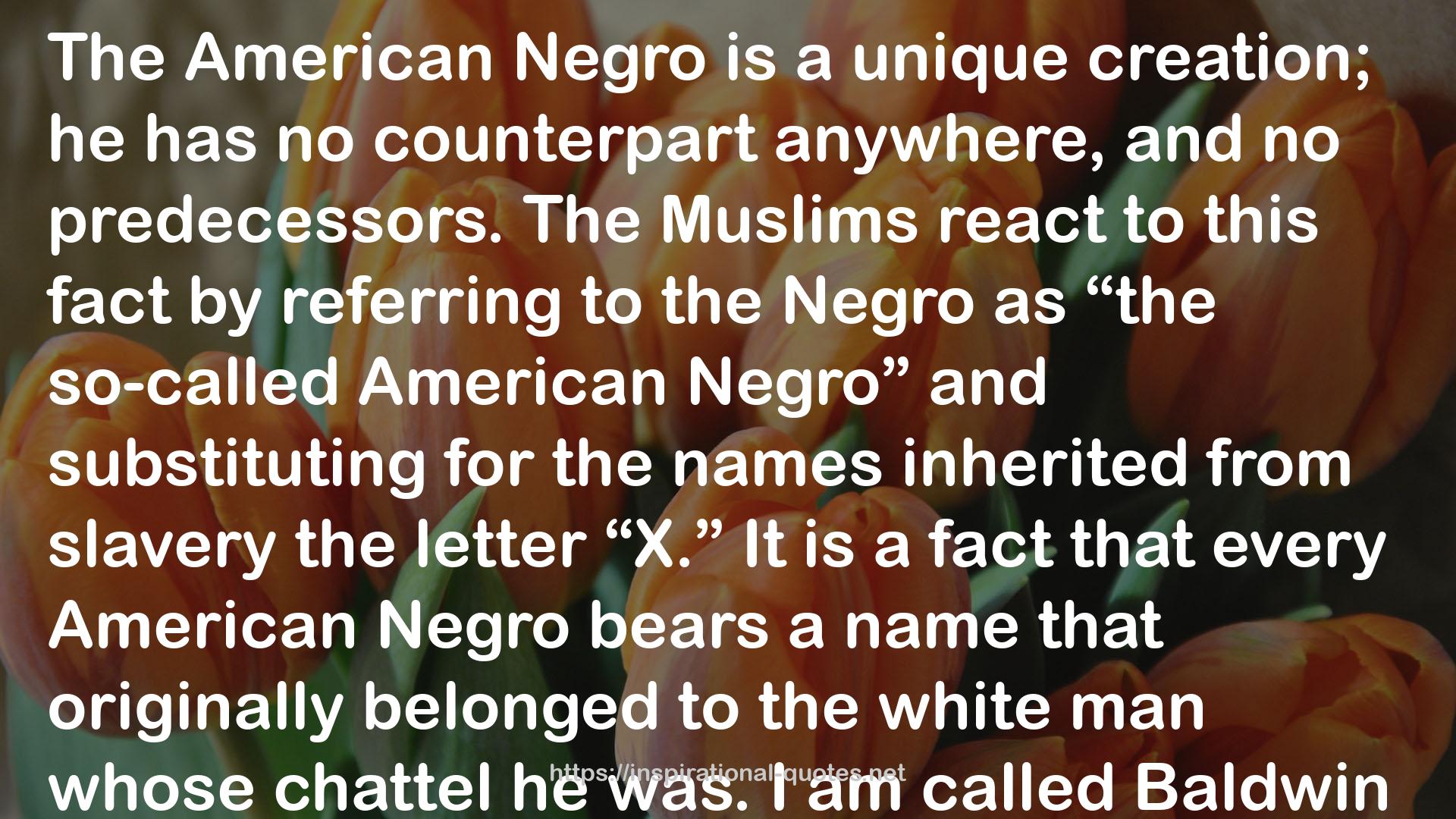" The American Negro is a unique creation; he has no counterpart anywhere, and no predecessors. The Muslims react to this fact by referring to the Negro as “the so-called American Negro” and substituting for the names inherited from slavery the letter “X.” It is a fact that every American Negro bears a name that originally belonged to the white man whose chattel he was. I am called Baldwin because I was either sold by my African tribe or kidnapped out of it into the hands of a white Christian named Baldwin, who forced me to kneel at the foot of the cross. I am, then, both visibly and legally the descendant of slaves in a white, Protestant country, and this is what it means to be an American Negro, this is who he is—a kidnapped pagan, who was sold like an animal and treated like one, who was once defined by the American Constitution as “three-fifths” of a man, and who, according to the Dred Scott decision, had no rights that a white man was bound to respect. And today, a hundred years after his technical emancipation, he remains—with the possible exception of the American Indian—the most despised creature in his country. "
― James Baldwin , The Fire Next Time
